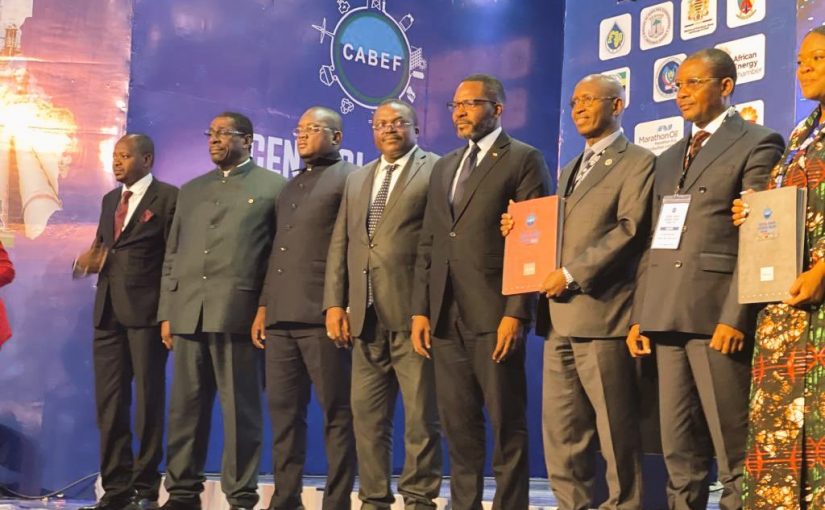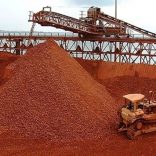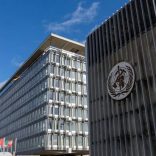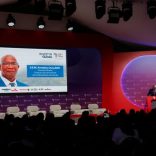Ghana cancels $1.2 billion bauxite deal, eyes global partnership, sources say
Central African nations eye pipelines and hubs to end energy poverty

Photo: Twitter / @GabineteMmh
Central African countries signed a deal on Thursday to create a regional oil and gas pipeline network and hub infrastructures which backers say will strengthen energy supply and reduce dependence on imports of refined products.
The project aims to construct three multinational oil and gas pipeline systems of around 6,500 km, storage depots, liquefied natural gas terminals, at least three refineries and gas-fired power plants linking 11 countries by 2030, according to project documents seen by Reuters.
The countries, including Equatorial Guinea, Cameroon, Gabon, Chad, Angola, Democratic Republic of Congo and Congo Republic are all oil producers or have vast untapped oil and gas reserves but are dependent on refined products imports.
Most of them have little or no refining capacity and have been struggling with fuel and power shortages, made worse by the Ukraine crisis.
Gabriel Mbaga Obiang Lima, Minister of Mines and Hydrocarbons of OPEC member Equatorial Guinea, told the forum ahead of the signing ceremony in Cameroon that the project was crucial to tackle energy poverty in the region.
He said the project was inspired by West Africa’s gas pipeline linking Nigeria, Benin, Togo and Ghana, and the European model where Rotterdam serves as a refining and distributing hub for several countries.
“It will not be cheap, or easy, but if it is done as a collaboration, it will work,” he said, adding that the network will help get rid of trucks crisscrossing countries and boost the regional oil and gas market taking products where needed.
The memorandum of understanding for the project signed on Thursday by the African Petroleum Producers’ Organization (APPO), one of the backers, and the Central Africa Business Energy Forum, will pave the way for feasibility studies.
Omar Farouk Ibrahim, Secretary General of APPO said the project was one of the most ambitious energy infrastructure projects whose completion has the potential to dramatically change the economies of participating countries.
“It shall take energy from areas of abundance to areas of need within the Central African subregion. It shall integrate and energize national economies of the Central Africa subregion,” Ibrahim said.
An M.O.U was signed at the #CABEF2022 which is taking place now in Douala-Cameroon, where Honorable Ministers of #AfricaCentral witnessed between CABEF @Cabef2022Forum AND APPO @AppoSecretariat ,this M.O.U consists of a vialabilty study of a pipeline for Africa Central. pic.twitter.com/tpz8eqhxJe
— Gabinete de Comunicación MMH (@GabineteMmh) September 8, 2022
H.E @GabrielObiang takes part at the #CABEF2022 Ministerial Panel with the theme: Building Infrastructures to end Energy Poverty in Central Africa by 2030, the Equatorial Guinea Minister stated out that “we need to establish an Energy market in the Africa subregion” pic.twitter.com/XUc2s6fZpk
— Gabinete de Comunicación MMH (@GabineteMmh) September 8, 2022












Leave a Reply
Be the First to Comment!
You must be logged in to post a comment.
You must be logged in to post a comment.